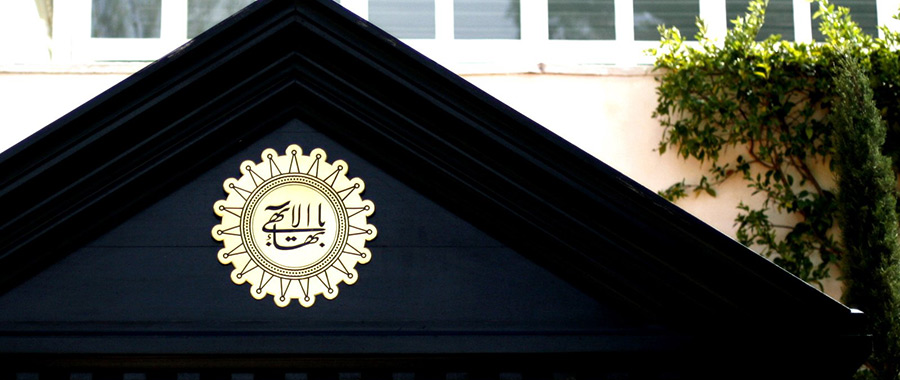Celebrating the Bicentennial of Bahá’u’lláh’s Birth offers an exceptional opportunity to delve into the richness of Bahá’í teachings and the profound significance of this momentous event. Commemorated on November 12, 2017, this bicentenary not only marks the birth of Bahá’u’lláh, the founder of the Bahá’í Faith, but also serves as an occasion for Bahá’ís worldwide to reflect on the teachings and principles that underpin their spiritual and social pursuits. This article aims to elucidate the central themes of Bahá’í teachings as they relate to this auspicious celebration, exploring the various types of content that enthusiasts and followers can anticipate.
The Bahá’í teachings emanate from an emphasis on unity—unity of God, unity of religion, and unity of humanity. At the core of the beliefs is the conviction that all major world religions stem from the same divine source. Bahá’u’lláh articulated this central tenet with unprecedented clarity, presenting a vision of a society where religious differences yield to universal collaboration. From community service projects to interfaith dialogues, the bicentennial celebration manifested the spirit of unity in myriad forms, showcasing the continuous evolution of this religious philosophy through shared action.
Engaging reflections from Bahá’í scholars and teachers are abundant during such anniversaries, providing critical analyses of Bahá’í texts and their implications for contemporary society. Essays and articles dissecting the historical context of Bahá’u’lláh’s life add depth to the celebration. This scholarly discourse allows followers to appreciate the nuances of Bahá’í teachings as they intersect with modern challenges, such as climate change, inequality, and global conflict. In examining the historical trajectory, readers gain insights into the extensive influence of Bahá’í principles on progressive movements worldwide.
Artistic expressions also play an integral role in the bicentennial celebrations. The Bahá’í Faith has long recognized the power of the arts in uplifting the human spirit. From poetic recitations to musical compositions inspired by Bahá’u’lláh’s writings, the celebratory events often encompass a plethora of artistic creations that resonate with themes of love, devotion, and service. Such performances not only epitomize Bahá’í teachings but also serve to foster a spirit of community, inviting audiences to engage with the transformative power of art in spiritual practice.
Moreover, the bicentennial offered numerous educational initiatives aimed at cultivating deeper understanding among both Bahá’ís and the broader community. Workshops and seminars focused on the application of Bahá’í principles in daily life highlighted the faith’s commitment to education as a vehicle for personal and communal transformation. By addressing topics such as the importance of justice and equality, these programs encouraged participants to embody Bahá’í teachings in their interactions and decision-making processes, thus facilitating a more meaningful celebration of Bahá’u’lláh’s legacy.
The emphasis on youth engagement cannot be understated, as the youth are seen as the torchbearers of the future. The bicentennial celebrations included special programs tailored for young people, empowering them to explore and express their understanding of Bahá’í principles. Activities that combined learning with service allowed the younger generation to connect with the heritage of their faith while also addressing pressing global issues. Encouraging this demographic to contribute to community projects and social initiatives ensured the teachings remain relevant and actively implemented in present-day circumstances.
Additionally, the bicentennial celebration provided a platform for outreach and engagement with non-Bahá’í communities. Interfaith gatherings and public dialogues amplified the voice of Bahá’í teachings, emphasizing shared values such as compassion, honesty, and service to humanity. These interactions showcased the Bahá’í commitment to fostering understanding and cooperation amongst diverse religious traditions. They also served to illuminate how the teachings of Bahá’u’lláh resonate with universal principles found in other faiths, thereby reinforcing the call for global unity and peaceful coexistence.
An essential component of the bicentennial celebrations was the emphasis on prayer and reflection. The opportunity for communal prayer sessions allowed participants to deepen their spiritual connection and renew their commitment to the teachings of Bahá’u’lláh. This element of devotion underscores the Bahá’í belief in the importance of personal transformation as a means of contributing positively to the wider community. The spiritual nourishment derived from such gatherings further enriches the collective experience of celebrating this significant milestone.
Lastly, the bicentennial celebrations often culminated in service projects that embodied the Bahá’í commitment to social justice and welfare. Whether it involved preparing meals for the needy or organizing educational workshops in underserved communities, these initiatives exemplified the importance of action in Bahá’í teachings. The principle of service is central to Bahá’í practice and serves as a critical avenue for individuals to apply the ideals of their faith in tangible ways that benefit both the individual and society at large.
In conclusion, the celebration of the Bicentennial of Bahá’u’lláh’s Birth is a multifaceted observance rich with meaning, purpose, and potential. By engaging in scholarly reflection, artistic expression, community involvement, youth empowerment, interfaith dialogue, spiritual devotion, and dedicated service, individuals and communities resonate with the teachings of Bahá’u’lláh in diverse and impactful ways. As such commemorations continue, they inspire not only a renewed commitment to Bahá’í principles but also a broader movement towards a united and flourishing global community.
